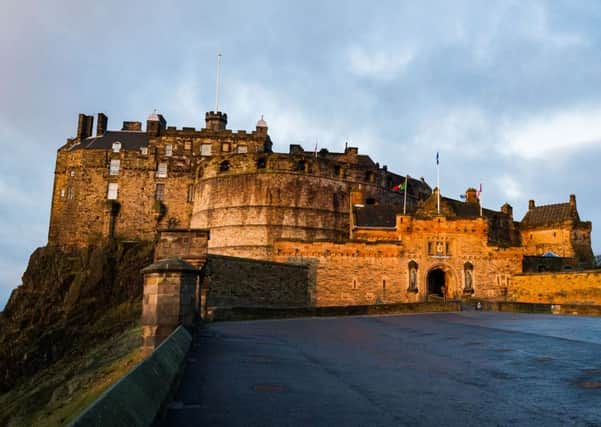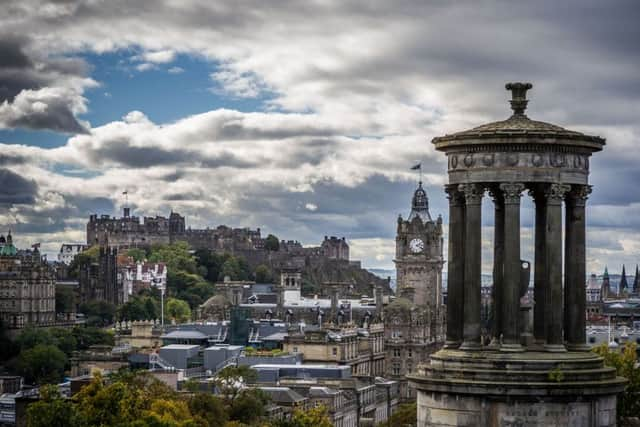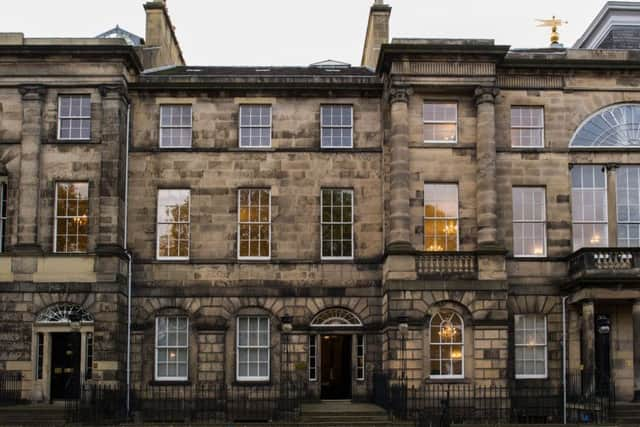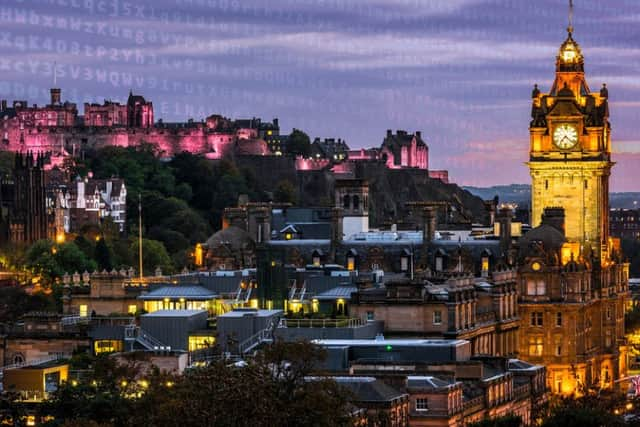A history of surnames from Edinburgh and the Lothians


While in England there can be a tendency for places to be named after people, in Scotland the opposite can be true, and people tended to be named after places.
The Ragman Role of 1296, extracted by Edward I from substantial Scottish landlords of the day, offers vital historical evidence of names originating in Scotland.
Advertisement
Hide AdAdvertisement
Hide AdHere we take a look at the history behind 22 names believed to have originated in Edinburgh.


Baillie
First recorded in Lothian in 1311, the name is a derivative of the old French word bailli, meaning ‘bailiff’ or in local government in Scotland, a bailie was the equivalent of an alderman.
Begbie
Originating from the lands of Begbie, near Haddington, the meaning behind the name is ‘Baggi’s farm’. The surname has remained very local over time and has very rarely appears outside of the Edinburgh and Lothians area.


Binnie
Binning is an old barony in West Lothian and the name may have derived from the Gaelic beinnach, meaning ‘hilly’. The surname can also appear as Binney, Binning and Binny.
The name can also be found in Aberdeen, Perth and Stirling.


Bolton
The name of a settlement in East Lothian, but most bearers of the name will have originated in the English city of Bolton in Lancashire.
Braid
From the lands on the south side of Edinburgh, comprising Braid Hills, Plewlands and Bravelaw.


Sir Henry de Brade, who was sheriff of Edinburgh during the reign of William the Lion, was mentioned in the royal act as one of the twelve Scottish knights appointed to strike a deal with England over land disputes and borders.
Advertisement
Hide AdAdvertisement
Hide AdThe lands of Braid remained in the same family for two hundred years with the name remaining very localised until eventually spreading to Fife from the 15th century onwards.
Brand
Thomas Brand was a burgess in mediaeval Edinburgh and the name regularly appears in the register for marriages for the parish of Edinburgh between 1595 and 1760.
Cairns
Most often from the Cairns in Mid Calder, Midlothian, the name frequently appears in Lothian records in the late 14th century onwards, particularly in church circles.


Cordiner
A cordwainer made shoes from goatskin leather, the cordiners were elected into a fraternity in Edinburgh in 1349.
Cranston
From a barony of the same name in Midlothian, it embodies the first name Cran.
Thomas de Cranstoun, provost of Edinburgh, was ambassador of James II in 1449.
Crichton
From the old barony of Crichton, south of Edinburgh, Crioch is Gaelic for boundary and toun is the old Scots word for homestead.
Dodds
Advertisement
Hide AdAdvertisement
Hide AdMainly found in Edinburgh, but the Dodds may have come from the lands of Doddis in Berwickshire.
Dundas
Dundas is a place near Edinburgh and most probably means ‘south fort’.
Edmiston / Edmundstone
Both names mean ‘Edmund’s farm’ and the origin is a place near Edinburgh. The name was very rare though Henry de Edmunstone was witness to a charter around 1200. The name later migrated to Shetland in the 1560s, where two centuries later, was that of a distinguished family of surgeons and writers.
Elphinstone
A place in Midlothian of the same name is the source of the surname, which means farmstead or ‘Alphin’s toun’.
Heriot / Herriot
Very well known as the name of George heriot, who died in 1624 and was a jeweller and treasurer to James VI. He was founder of Heriot’s Hospital in Edinburgh.
The name derives from a Lothian village and comes from the old English words here gatu, meaning ‘military equipment’.
Leith
Meaning wet, the port of Edinburgh takes its name from the river whose estuary it occupies.
Advertisement
Hide AdAdvertisement
Hide AdA family called Leith held the barony of Restalrig and were burgesses of Edinburgh in the mediaeval period.
Livingston / Livingstone
From a place, now a New Town, in Lothian, meaning ‘Levin’s toun’.
Levin is from old English and means ‘dear companion’.
Ormiston
Literally ‘Orm’s farm’, Ormiston is the name of very places in Roxburghshire and East Lothian. The name is now more or less confined to the Edinburgh area.
Pennycook
Penicuik is the name of a place near Edinburgh and means ‘cuckoo hill’.
The surname was originally very localised and a name roll in 1292 contains just two Midlothian landowners. Margaret de Penicoke and Hugh de Penicoke.
Pringle
A contraction of Hopringle, the old name of a place in Stow, Midlothian, it is from Old Norse hop (valley).
Smeaton
There are two place in East Lothian that go by this name and in 1292 Henry de Smithetone is a landowner in the area.
Waddell
Wedale is an obsolete place-name in Midlothian whose origin is obscure but whose final syllable means ‘valley’.
